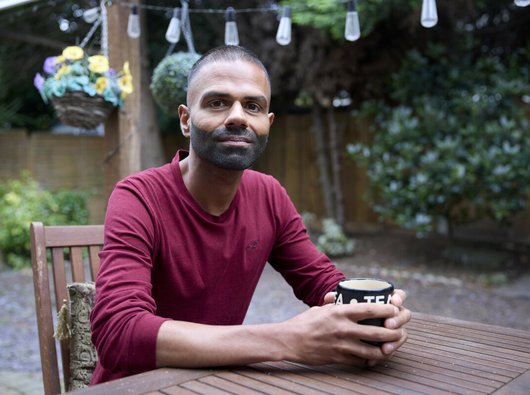Side effects of treatment for MALT lymphoma
Treatment for MALT lymphoma can cause unwanted effects called side effects, but there are ways to manage them.
Possible side effects
Treatment aims to destroy lymphoma cells and put you in remission, where there is no sign of the lymphoma left. But drugs can also affect your healthy cells and stop the immune system working properly. This can may cause side effects.
Side effects will vary from person to person, depending on your treatment, and your general health.
Your team will talk you through potential side effects. Tell them if you experience any changes in how you feel so that they can help you.
The most common side effects from treatments such as radiotherapy and chemo-immunotherapy are temporary. These include:
- loss of appetite
- feeling and being sick
- changes to weight, including weight gain and weight loss
- fatigue
- aching muscles or joints
- dizziness and headaches
- higher risk of infection
- bruising and bleeding more easily
- changes to skin, such as a rash
- hair loss
- sore mouth and mouth ulcers
- changes to bowel habits, such as constipation or diarrhoea
- dry eyes
- trouble sleeping.
Some treatment for MALT lymphoma can also affect your chance of having a child (your fertility). If this is important to you, talk to your team about the various options for preserving your fertility before you start treatment.
Sunny's story
Sunny experienced a range of side effects from his treatment for a type of non-Hodgkin lymphoma. He reflects on how he coped emotionally with changes to his appearance.

Managing side effects
You are unlikely to experience all the possible side effects of the treatment you are having. Most people cope with MALT lymphoma treatment well, but some side effects can be difficult.
There are things that you and your team can do to help manage side effects. This is called supportive care. Supportive care includes:
- medicines to treat or prevent infections (antibiotics)
- medicine to stop you feeling sick (antiemetics)
- injections of medicine to encourage the growth of new blood cells if your blood counts are low
- maintaining a healthy, balanced diet and lifestyle to help manage the increased risk of infections, improve fatigue, and help with nausea.
Lots of people find that mindfulness or relaxation techniques can help with side effects and pain management.
Speak to your CNS
You should be given a clinical nurse specialist (CNS) to support you through your treatment. Your CNS is your key worker, your main point of contact in the hospital team and someone who plays an important role in your care.
Your CNS will tell you what might help and point you to the right support. You may also like to read our information about specific side effects and how to manage them.

Contact our support services team
Our team of nurses and trained staff offer support and information to anyone affected by or worried about blood cancer. Contact them by phone, email, or on our Community Forum.
More About This